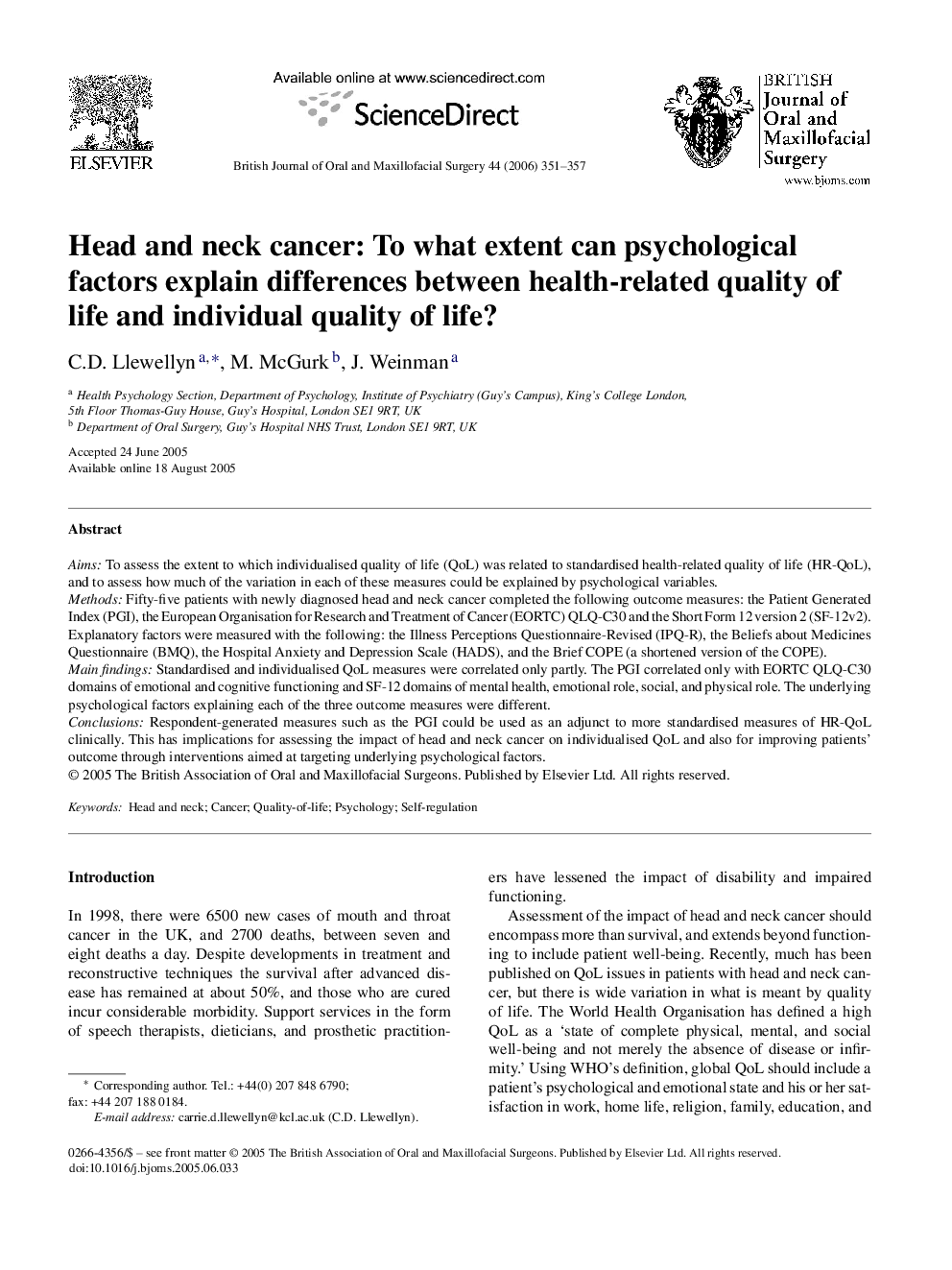| Article ID | Journal | Published Year | Pages | File Type |
|---|---|---|---|---|
| 3126008 | British Journal of Oral and Maxillofacial Surgery | 2006 | 7 Pages |
AimsTo assess the extent to which individualised quality of life (QoL) was related to standardised health-related quality of life (HR-QoL), and to assess how much of the variation in each of these measures could be explained by psychological variables.MethodsFifty-five patients with newly diagnosed head and neck cancer completed the following outcome measures: the Patient Generated Index (PGI), the European Organisation for Research and Treatment of Cancer (EORTC) QLQ-C30 and the Short Form 12 version 2 (SF-12v2). Explanatory factors were measured with the following: the Illness Perceptions Questionnaire-Revised (IPQ-R), the Beliefs about Medicines Questionnaire (BMQ), the Hospital Anxiety and Depression Scale (HADS), and the Brief COPE (a shortened version of the COPE).Main findingsStandardised and individualised QoL measures were correlated only partly. The PGI correlated only with EORTC QLQ-C30 domains of emotional and cognitive functioning and SF-12 domains of mental health, emotional role, social, and physical role. The underlying psychological factors explaining each of the three outcome measures were different.ConclusionsRespondent-generated measures such as the PGI could be used as an adjunct to more standardised measures of HR-QoL clinically. This has implications for assessing the impact of head and neck cancer on individualised QoL and also for improving patients’ outcome through interventions aimed at targeting underlying psychological factors.
